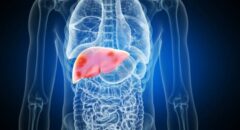
Heavy drinking for 10 years or more increases cirrhosis risk. However, excessive drinking accelerates cirrhosis. Your genetics may contribute.
Alcohol affects everyone differently. While long-term alcohol use increases cirrhosis risk, numerous other variables can affect it.
People assigned female at birth are more likely to develop cirrhosis than those assigned male. Due to genetics or liver problems, even one drink a day may increase the risk of cirrhosis.
Learn how long it takes to acquire cirrhosis from drinking, what happens to your liver when you drink too much, and what early liver damage symptoms to watch for.
How Much Alcohol Does It Take To Develop Cirrhosis?
Alcohol-related cirrhosis patients consume daily; many report 100 grams every day. One drink typically contains 13.7 grams of alcohol.
Experts define excessive drinking as:
- Male-born persons drinking 5 or more drinks per day or 15 per week
- For those who were assigned female at birth, having 4+ drinks per day or 8+ drinks per week is considered binge drinking (blood alcohol content 0.08 or more).
RELATED: Cirrhosis of the Liver: Causes, Symptoms & Treatment
How Long Does It Take To Get Cirrhosis From Drinking?
Alcohol-related cirrhosis symptoms often appear at 52 years old. Experts rate excessive drinking over 10 years as a high-risk factor for cirrhosis.
More frequent drinking can accelerate the development of cirrhosis.
A 2018 research reveals younger individuals are contracting cirrhosis. Between 2009 and 2016, the cirrhosis mortality rate for those aged 25-34 increased by 10%.
Cirrhosis progression may be influenced by other variables, according to a 2019 research of nearly 400,000 women. Drinking with a meal lowers the risk of cirrhosis while drinking daily without food doubles it.
What Happens To Your Liver When You Drink Too Much Alcohol?
The liver is the primary organ for alcohol metabolism. The liver’s hepatocytes, which comprise 80 percent of its bulk, create enzymes that








